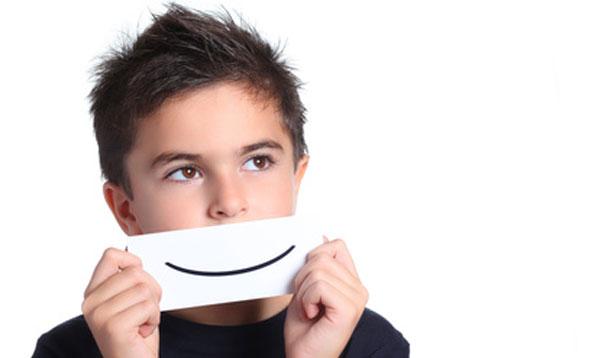
I have a very expressive face, but I don't smile a lot. I have to be very happy or excited to make a genuine smile. It's only in the last few years I learned to smile for pictures in a way that doesn't look fake or frozen. It could be because I'm autistic or some other reason, it doesn't really matter. What does matter is the number of times I've been told to smile, and the damage that can do to a person and their self-esteem.
I'm sure you've heard some of the following directed your way, as well:
“Smile, you'll look so much prettier.”
“Just give me a little smile.”
“Aren't you happy? You should smile.”
“If you only smiled more, people would like you more.”
“You have such a beautiful smile, I want to see it.”
“I don't like to see you look so sad—smile.”
These requests can sound innocent enough in isolation, but they build up over time. After hearing things like that from friends and family members, it can become almost commonplace. By the age of three, most children can and will smile on command—whether they want to or not, whether their emotions match or not. They've already been trained to change their physical appearance to please others.
Examining these requests, what are they really asking for? They're saying, “I do not find you attractive as you are and want you to change for my benefit,” or, “I am uncomfortable dealing with your emotions and need you to present as happy, so I can be comfortable in your presence.”
What does this tell a person over time? It tells them they are not beautiful just the way they are. It tells them their feelings are not valid or must be hidden behind a facade so other people will tolerate their presence. It tells a person they must ignore their own comfort to bring pleasure to others and gain their acceptance. It tells us that our physical appearance is very important and is tied into our worthiness as a person.
When someone starts to lose their self-worth, they start to be more susceptible to what others demand of them. If a creepy guy on the street can ask for a smile, he can also ask for a kiss. At what point do you say no if you've been conditioned to ignore your feelings or long for acceptance?
We have a right to our bodies. We have a right in how we present ourselves—from the clothes we wear to the smile we choose to put on our face, or not. We do not exist for others to find us attractive. Our perceived attractiveness is not tied to our value as a person.
We need to teach children that they all have these rights. It is important to teach children they are beautiful whether they smile or not. We need to teach children they can respect their feelings and express them freely (as long as they don't harm others). We should let them know it's ok for them not to smile if they don't want to. They ultimately need to know they hold the power over their own bodies and only they get to dictate what they do with it.
If you liked this, you might also like: Climbing Up A Slide Isn’t Scary. This Is Scary! and Tips To Help Grow Positive Self-Esteem In Your Daughter.